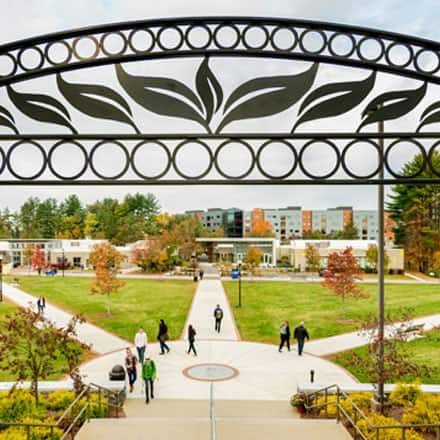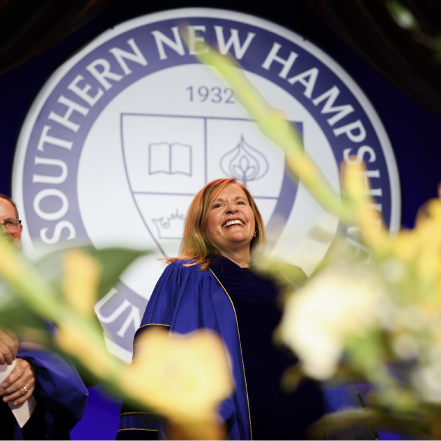Examining the Benefits of Workforce Partnerships in Higher Ed
This week, The Center for Higher Education Policy and Practice (CHEPP) at Southern New Hampshire University (SNHU) released a new report evaluating the current landscape of higher education workforce partnerships and provides guidance for practitioners and policymakers through the lens of learner-centered design.
CHEPP’s new white paper, Unpacking Workforce Partnerships: Improving Structures for Learners, examines different types of partnerships between higher education institutions and employers and how completing a credential or degree through an employer can help employees advance within their company, or pursue a degree that allows them to advance their personal and professional growth elsewhere. By sharing best practices and policy recommendations, the research is aimed at helping to ensure these relationships serve learners’ needs and contribute to their postsecondary and economic success.
 The story of Pedro Borges, a recent SNHU graduate who earned his BS in Business Administration through Walmart’s tuition benefit program, is an example of the success of these kinds of partnerships. Borges immigrated to the United States from Cape Verde to Massachusetts at the age of 18 to pursue the American Dream. Without access to Walmart’s program, Pedro would have struggled to pay for college. With his degree, he hopes to continue advancing his career.
The story of Pedro Borges, a recent SNHU graduate who earned his BS in Business Administration through Walmart’s tuition benefit program, is an example of the success of these kinds of partnerships. Borges immigrated to the United States from Cape Verde to Massachusetts at the age of 18 to pursue the American Dream. Without access to Walmart’s program, Pedro would have struggled to pay for college. With his degree, he hopes to continue advancing his career.
“I wanted to come to the U.S., like everybody else, to get a better life, but my main goal was always having a degree from a college in the U.S.,” Borges said. “Getting my degree through Walmart helped motivate me more because I knew I could not lose this opportunity and needed to take advantage of that and work hard through this program.”
CHEPP’s research emphasizes that as the number of workforce partnerships continues to grow, higher education institutions, employers, and policymakers must understand how these programs work and what makes them successful to ensure that learner success is a core element of these partnerships.
To learn more, read CHEPP’s latest white paper.
Explore more content like this article

SNHU Celebrates Largest Fall Commencement

Government Shutdown Update for Military Students

SNHU Celebrates the Inauguration of President Lisa Marsh Ryerson
About Southern New Hampshire University

SNHU is a nonprofit, accredited university with a mission to make high-quality education more accessible and affordable for everyone.
Founded in 1932, and online since 1995, we’ve helped countless students reach their goals with flexible, career-focused programs. Our 300-acre campus in Manchester, NH is home to over 3,000 students, and we serve over 135,000 students online. Visit our about SNHU page to learn more about our mission, accreditations, leadership team, national recognitions and awards.

